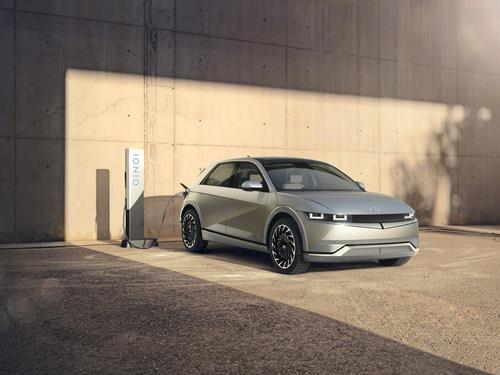- California Assembly OKs highest minimum wage in nation
- S. Korea unveils first graphic cigarette warnings
- US joins with South Korea, Japan in bid to deter North Korea
- LPGA golfer Chun In-gee finally back in action
- S. Korea won’t be top seed in final World Cup qualification round
- US men’s soccer misses 2nd straight Olympics
- US back on track in qualifying with 4-0 win over Guatemala
- High-intensity workout injuries spawn cottage industry
- CDC expands range of Zika mosquitoes into parts of Northeast
- Who knew? ‘The Walking Dead’ is helping families connect
Hyundai, Kia’s April sales decline amid chip shortage
Hyundai Motor Co. and its smaller affiliate Kia Corp. said Monday their vehicle sales continued to fall last month due to the impact of the global chip shortage on vehicle production.
Hyundai Motor’s sales fell 12 percent to 308,788 vehicles from 349,184 units a year earlier, while Kia’s declined 5.8 percent to 238,538 from 253,287 during the same period, the companies said in separate statements.
To minimize the impact of disrupted supplies of semiconductors, the two South Korean carmakers will adjust vehicle production in their global plants and launch “new, competitive” models, Hyundai said.
Global carmakers such as BMW and Volkswagen recently expected the semiconductor situation to ease from this year, but the shortage will not normalize until 2024.
Hyundai’s domestic sales fell 15 percent to 59,415 units last month from 70,219 a year ago, while overseas sales were down 11 percent to 249,373 from 278,965 during the cited period.
Kia’s domestic sales dropped 2 percent on-year to 50,095 units last month from 51,128, while overseas sales were down 6.8 percent to 188,443 from 202,159.
From January to April, Hyundai’s sales fell 10 percent to 1,211,733 autos from 1,349,012 units a year earlier, while Kia’s declined 2 percent to 924,277 from 943,277.
Hyundai and Kia, which together form the world’s fifth-biggest carmaker by sales, aim to sell a combined 7.47 million vehicles this year, 12 percent higher than their sales of 6.67 million autos last year.

This file photo provided by Hyundai Motor shows the IONIQ 5 all-electric crossover. (PHOTO NOT FOR SALE) (Yonhap)











